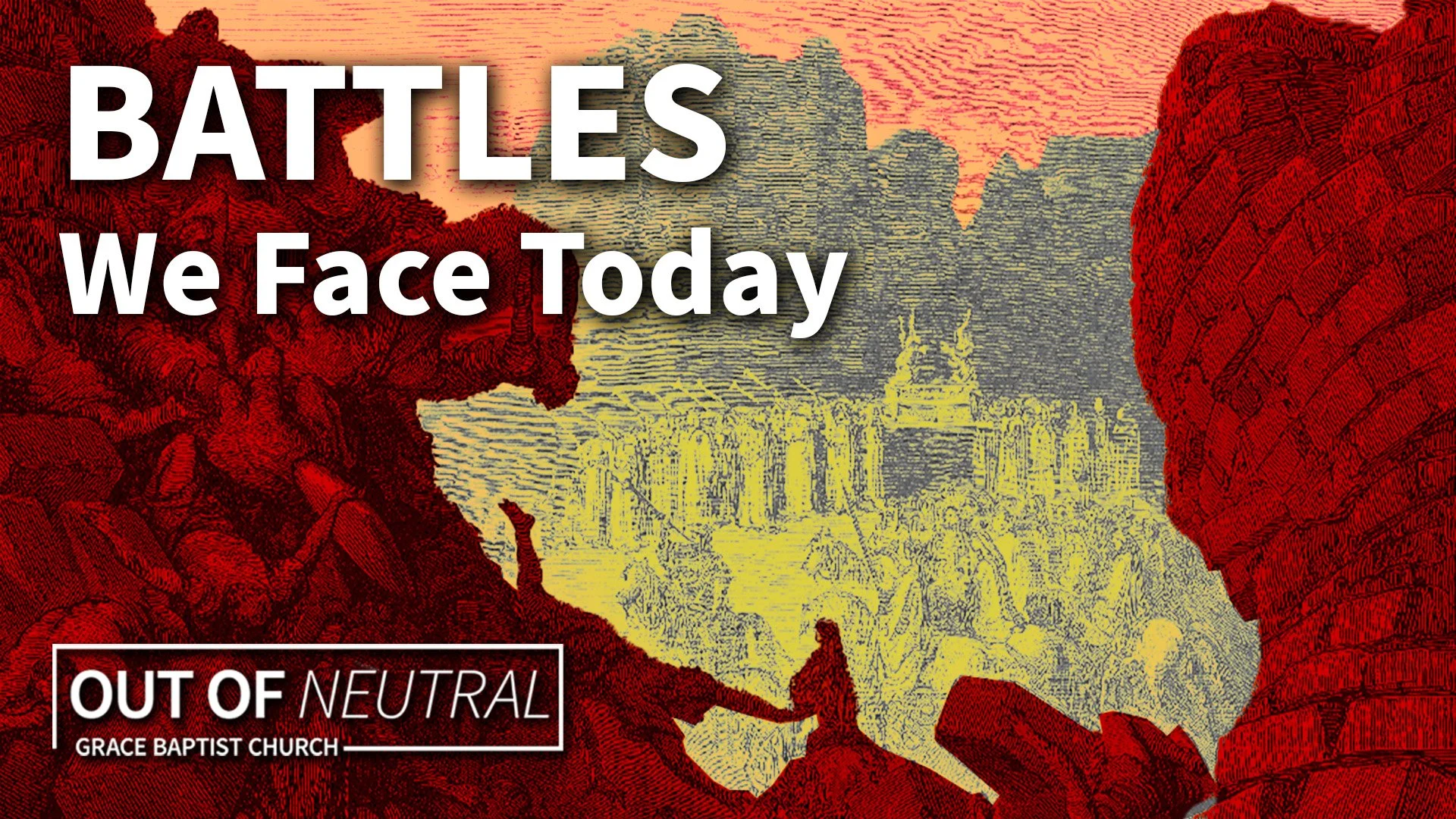Joshua tells the story of Israel’s battles to possess the Promised Land, but Christians can feel a disconnect and even an aversion to its message. That’s because, in the New Testament, Jesus doesn’t send His disciples out to battle armies or take over enemy lands. We’re called to bless our enemies and pray for those who persecute us. But the message of Joshua is important for Christians today. It gives vital lessons on how to face our spiritual battles. Consider these four.
1. The battle belongs to the Lord, but we usually still have to fight
The battle for the Promised Land begins with Jericho. What’s so memorable about this battle is that the Israelites are forbidden from engaging in it. Day after day, they do nothing but march around the city blowing trumpets. On the seventh day, after more marching and trumpets, they let out a great shout and the walls come down, ensuring the victory before the battle had really begun (Joshua 6:20). This taught God’s people that the Lord alone was responsible for their victory, so their success would depend on their trust in Him more than their skill in war.
Surprisingly, however, God never repeats this lesson. There are no more victories won through marching, trumpets, and shouts. After Jericho, the Israelites have to fight. The same tension comes in the Christian life. I’ve met Christians who have walked away from longstanding addictions to alcohol or pornography the moment they trusted in Jesus. But other sins require more work. It’s not that we’re alone in the struggle, but the Bible does say to “train yourself for godliness” (1 Timothy 4:7) and we’re told that “by the Spirit you put to death the deeds of the body” (Romans 8:13). The battle belongs to the Lord, but we still have to fight.
2. Since the battle belongs to the Lord, obedience to God’s Word is our strength
Once we get our heads around the idea that victory in the Christian life is something that God both promises to us as our inheritance as well as something we have to fight for, Joshua teaches us how to be successful. We’re not told to rely on our inherent abilities, or any special tactics or skills. Since God is responsible for the victory, success comes with obedience to His Word. As He famously tells Joshua, “This Book of the Law shall not depart from your mouth, but you shall meditate on it day and night, so that you may be careful to do according to all that is written in it. For then you will make your way prosperous, and then you will have good success” (Joshua 1:8). Progress in the Christian life is both mysterious and also a result of faithful reflection on and obedience to the Scriptures God has given us.
3. If God made the battle too easy, we’d be unprepared for what comes next
Christians often struggle to discern why the battle is so hard. Why do some sins take so much effort to put behind us? Why doesn’t God make it easier for His people? While all of His purposes aren’t spelled out, God does give some clues. Before Joshua ever enters the Promised Land, for instance, God warns, “I will not drive them out from before you in one year, lest the land become desolate and the wild beasts multiply against you” (Exodus 23:29). If the victory came too quickly, we’d be unprepared to handle the success. Also, as God makes clear in Judges 3:1-2, there are some lessons that we can only pick up in the battle. Often, what we learn in the struggle is more important than the difficulty we experience in it.
4. A Christian’s defeat comes in choosing to live with our sins instead of eradicating them
God repeatedly promises to give Joshua and the Israelites the land (Joshua 1:3; Deuteronomy 1:8). The battle of Jericho teaches them that if they trust the Lord, He will bring certain victory. And yet, as Joshua comes to the end of his life, much of the Promised Land remains just a promise. God says to him, “You are now very old, and there are still very large areas of land to be taken over” (Joshua 13:1). Was God not faithful? Or was He not strong enough to give them victory? No, the problem lies with the people’s complacency and compromise. They either avoid the hardship of the battle (Joshua 18:3) or decide that it would be more convenient to put the Canaanites to work for them rather than drive them out (Joshua 16:10; 17:12-13).
We often face the same tension. God promises us the life that could be ours by His Spirit, but it feels like too much work. We’d rather make peace with our sins than put them to death. This is still a prescription for defeat for the people of God.
The book of Joshua gives us hope. God’s people have begun to enter into their inheritance. But there is still so much work to be done. God can indeed bring victory, but the people’s sin seems to keep dragging them into defeat. The book gives us an anticipation of a greater Joshua. We await the One who will ensure the final victory of God’s people. Joshua has some important lessons to teach us about the Christian life, but our hope and our security come in Jesus.
In awe of Him,
Paul














